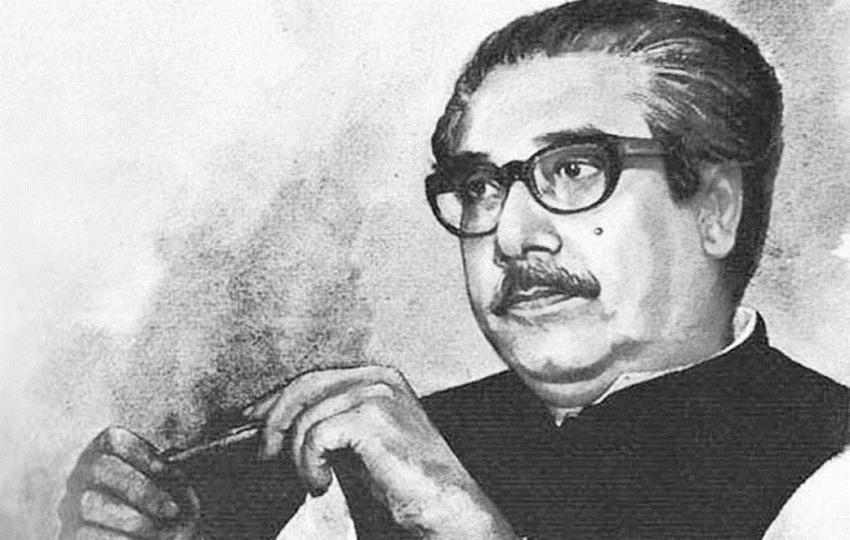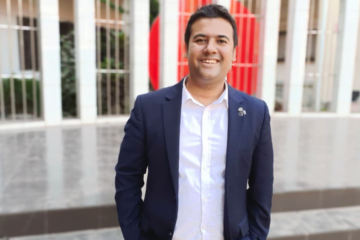Junaid Ahmed Palak, MP
People can be killed. But his philosophy, principles and ideals cannot be killed. On August 15, 1975, assassins killed the undisputed leader of Bengali, the Father of the Nation, Bangabandhu. But they could not kill his philosophy, principles and ideals. His ideals are our path today.
In fact, Bangabandhu's life-philosophy, principles, ideals, actions and multi-dimensional qualities of leadership contain all the elements of being an ideal man and a good citizen. If you read three books written by Bangabandhu - 'Unfinished Self-Jewish', 'Karagarer Roznamcha' and 'Amar Deha Nayachin', you get a clear idea about this. As a student, human qualities and love for people and a charismatic sense of politics can be seen in him. That is why he came to the attention of Hossain Shaheed Suhrawardy, the Labor Minister of undivided Bengal in 1938 while studying at Gopalganj Mission School.
During his school life, Sheikh Mujib used to go door to door and collect fistfuls of rice as an active member of the 'Muslim Seva Samiti' run by his tutor Kazi Abdul Hamid, MSc and provide books, examination fees and jagir expenses to the poor students. In 1943, when he was a college student, about 500,000 people died in a terrible famine. Bangabandhu opened a langarkhana and fed people. Bubuksu shared the food that was left in the hostel at noon and night by sitting the people.
Bangabandhu has known every person of the country for 23 years. Led them to become bold and competent in demanding their civil and moral rights and their just right to live a life free from doubt. He loved the people of the country very much. On January 18, 1972, in response to a question from British television journalist David Frost, he said, 'My greatest strength is that I love my people. My greatest weakness is that I love them too much.'
Integrity was the main driving force in Bangabandhu's life. He learned honesty from his family. His father Sheikh Lutfar Rahman told him in 1942, "Father, I will not object to politics, you are fighting for Pakistan, it is so much happiness, but do not forget to study." If you don't learn education, you can't become a person. And remember one thing, if you have 'Sincerity of Purpose and Honesty of Purpose', you will not be defeated in life." (Sheikh Mujibur Rahman, Unfinished Autobiography, page 21). Bangabandhu practiced this integrity throughout his life. Never resorted to lies and hypocrisy in politics.
Bangabandhu was a visionary leader. Even if Pakistan became independent in 1947, it would not benefit Bengalis. The prudent and wise leader Bangabandhu realized this well. But since that time, he kept thinking of Bengali independence in his mind. When did the idea of Bangladesh come to your mind - After independence, in response to a question from Annada Shankar, Bangabandhu said that in 1947 I was in Suhrawardy Saheb's party. 23 years of agitation for the realization of that dream. Bangabandhu wrote in his unfinished autobiography that Pakistan's politics began with conspiracies. As long as Jinnah lived, no one dared to go public. The day he died, the politics of conspiracies began in full swing. (Unfinished Autobiography, page 78).
Pakistan's conspiracy was exposed by declaring Urdu as the state language. The movement started from 1948 to demand Bangla as the national language. Bangabandhu turned the language-based nationalist movement into a freedom movement step by step for a long period of 23 years. He believed in crowd power. That is why he has highlighted the Pakistani exploitation and discrimination in front of people. His special quality was that he was a good orator. Motivated the people through speeches. Bangabandhu's speech on March 7, 1971 became an unforgettable element of world history. This 19-minute long speech was groundbreaking and one of the best in the world. People had hundred percent confidence in Bangabandhu's leadership, ideals and principles. That is why every man could make himself a revolutionary. In his speech on March 7, 1971, he called for independence. Responding to his call, the people prepared for an all-out struggle against the Pakistani ruling class. A nine-month armed war resulted in the emergence of independent sovereign Bangladesh.
I have already said that Bangabandhu is a visionary leader. Not only in political struggle, but also in building a war-torn country in just three and a half years of state governance, he took some steps which are derived from his visionary thinking. His eternal dream was to build Sonar Bangla. He was also implementing well-planned economic programs for that purpose. Let's just talk about the expansion of information and communication technology and various initiatives. Bangabandhu took various initiatives to make Bangladesh a modern technology-based, science-based and prosperous country.
One of these is the initiative to bring home the benefits of the third industrial revolution or digital revolution. Bangladesh is a war torn country. Basic needs of people like food, shelter, shelter, education should be given priority consideration. But he has also thought of digital or third industrial revolution based on information and communication technology to build his dream Sonar Bangla. ITU membership on 5 September 1973, implementation of ERTS satellite village, inauguration of satellite earth station at Betbunya on 14 June 1975, inclusion of technology in education in the First Five Year Plan and establishment of 'Bangladesh Council of Science and Industrial Research (BCSIR)' in science and technology development and knowledge and science based Formation of Kudrat-e-Khuda Education Commission in the construction of society was the result of his visionary thinking. There is no sector in which he has not taken action from visionary thinking. Bangladesh also gets the benefits. A growth of over 9 percent was achieved in the year following the implementation of the First Five Year Plan. Had Bangabandhu been alive, the happy and prosperous Sonar Banglagarh of his dream would have been built long ago.
On August 15, 1975, one such leader was brutally murdered in his family. This was no ordinary murder. A far-reaching national and international conspiracy has worked behind this murder. The leader who through his long political struggle became a role model for freedom-seeking people all over the world. His politics throughout his life was the political and economic emancipation of Bengalis and the independence of Bengal. Why was he killed?
The reason why the conspiracy of the Pakistani dictator and their international allies to kill Bangabandhu in the pre-independence movement-struggle did not succeed was the strong unity of the people under the strategic, visionary and courageous leadership of Bangabandhu. As a result of this, they suffered a miserable defeat in the liberation war of 1971. But they could not accept this defeat. A new dimension was added to their conspiracy in independent Bangladesh. This is because of the polarization of world politics. The rise of a nationalist leader in South Asia like Bangabandhu, who was awarded the Julio Currie Peace Prize in 1973, could not be accepted by the domestic and foreign defeated powers of 1971. After the assassination of Bangabandhu, the rulers after 75 tried to turn Bangladesh into a new Pakistan for 21 years. Runs the country in a reactive manner. We are fortunate that the people of the country elected Sheikh Hasina, daughter of Bangabandhu, to power in 1996 and 2008 elections. As Bangladesh was governed in the spirit of the Liberation War under the leadership of the Prime Minister for three consecutive terms from 1996-2001 and 2009, people are getting to know the true history of the Liberation War, Bangabandhu's philosophy of life, principles and ideals.
He is immortal in history, who creates history and dreams to the nation by realizing his dreams. Father of the Nation Bangabandhu Sheikh Mujibur Rahman dreamed of Bengali independence. He also realized that dream through long 24 years of agitation and struggle. History did not create him. He created history. Bangabandhu is the great man of history. We have to move forward by following the philosophy, principles and ideals that he has left before us through his political struggles and actions to bring smiles to the faces of the suffering people. A person can become a good citizen and an ideal person only by following the ideals of Bangabandhu.
Bangabandhu quote: Leader may die, but ideology does not die if the organization survives.
Author: Junaid Ahmed Palak, Minister of State, Department of Information and Communication Technology.
Test News




